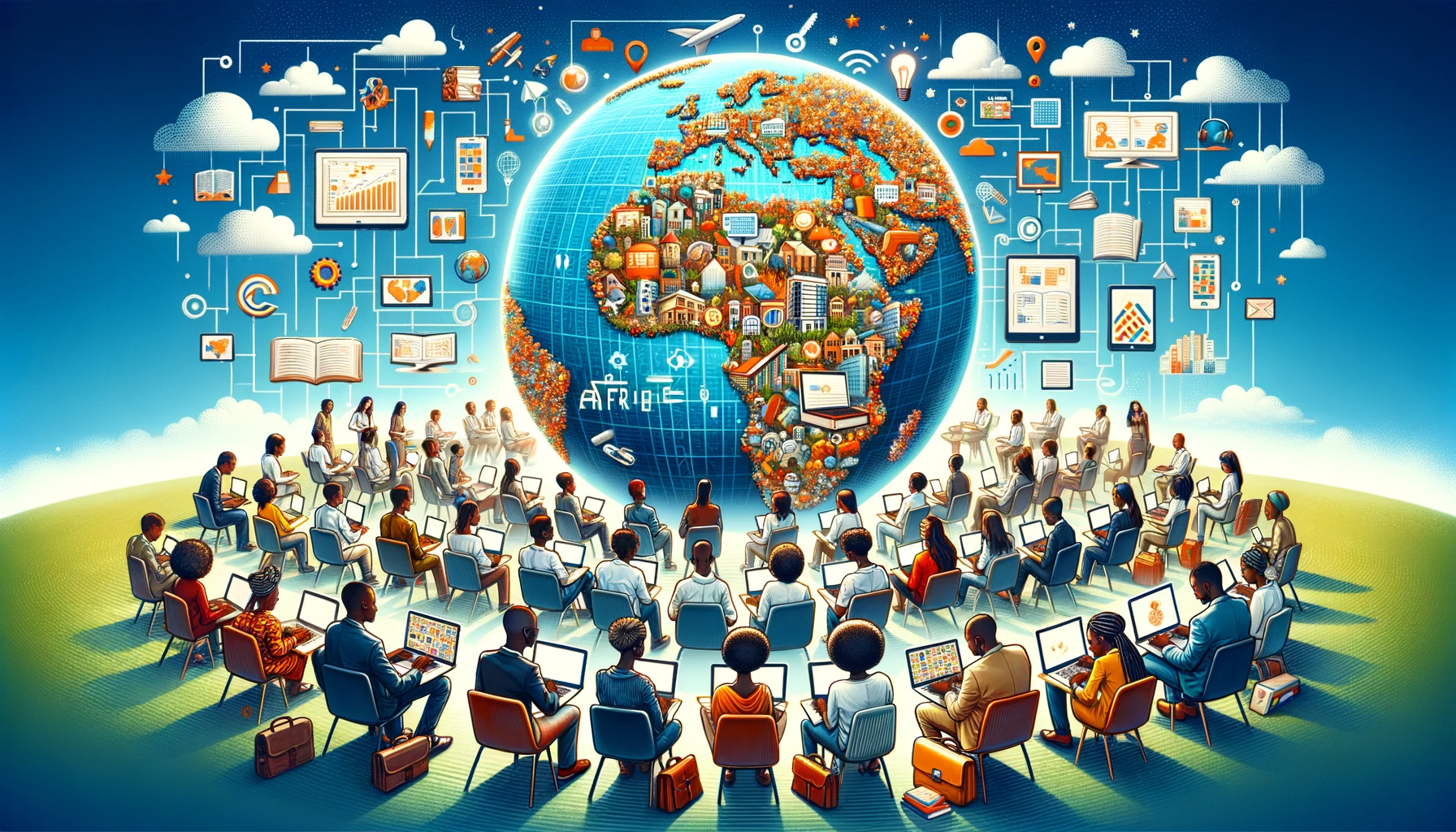Introduction: In recent years, technology has emerged as a powerful tool for transforming education across Africa. This article explores the opportunities and innovations that technology offers in improving access to quality education on the continent.
Opportunities:
- Overcoming Traditional Barriers: Technology has the potential to overcome traditional barriers to education, such as distance, infrastructure limitations, and resource constraints. With the rise of digital platforms and mobile devices, learners can access educational content from anywhere, at any time.
- Enhancing Learning Experiences: Interactive multimedia resources, online courses, and educational apps enrich learning experiences and cater to diverse learning styles. Technology enables personalized and adaptive learning approaches that engage students and promote deeper understanding.
- Fostering Collaboration and Connectivity: Digital technologies facilitate collaboration among students, teachers, and communities, breaking down geographical boundaries and fostering a sense of connectedness. Virtual classrooms, online forums, and social media platforms enable knowledge sharing and peer-to-peer learning opportunities.
- Empowering Teachers: Technology empowers teachers with innovative tools and resources to enhance their teaching practices. Digital platforms offer access to lesson plans, teaching resources, and professional development opportunities, enabling educators to improve their skills and stay abreast of educational trends.
- Promoting Lifelong Learning: Technology supports lifelong learning initiatives by providing access to a wide range of educational resources and opportunities beyond the traditional classroom. Online courses, open educational resources (OER), and digital libraries enable individuals to pursue continuous learning and skill development throughout their lives.
Innovations:
- Mobile Learning: The proliferation of mobile devices, particularly smartphones, has fueled the growth of mobile learning initiatives across Africa. Mobile apps, SMS-based learning platforms, and mobile-friendly websites deliver educational content to learners on-the-go, bridging the digital divide and reaching underserved populations.
- E-Learning Platforms: Online learning platforms, such as Massive Open Online Courses (MOOCs) and learning management systems (LMS), provide access to high-quality educational content from leading institutions worldwide. These platforms offer courses in diverse subjects and languages, catering to the needs and interests of learners across Africa.
- Digital Content Creation: The creation of locally relevant and culturally appropriate digital content is essential for promoting effective learning outcomes. Initiatives to develop indigenous language content, educational videos, and interactive multimedia resources empower African learners to engage with content that reflects their identities and experiences.
- ICT Integration in Schools: Integrating Information and Communication Technology (ICT) into school curricula enhances teaching and learning processes. ICT-enabled classrooms, equipped with computers, tablets, and interactive whiteboards, support innovative teaching methods and enable students to develop digital literacy skills.
- Public-Private Partnerships: Collaboration between government, private sector, and civil society stakeholders is critical for advancing technology-enhanced education initiatives in Africa. Public-private partnerships facilitate resource mobilization, knowledge sharing, and capacity building, driving innovation and sustainability in education.
Conclusion:
Technology has the potential to revolutionize education in Africa, offering new opportunities for learning, collaboration, and empowerment. By harnessing technology effectively, African countries can overcome traditional barriers to education, enhance learning experiences, and equip learners with the skills they need to succeed in the digital age. Embracing innovation and fostering partnerships are key to realizing the transformative potential of technology in education across the continent.

